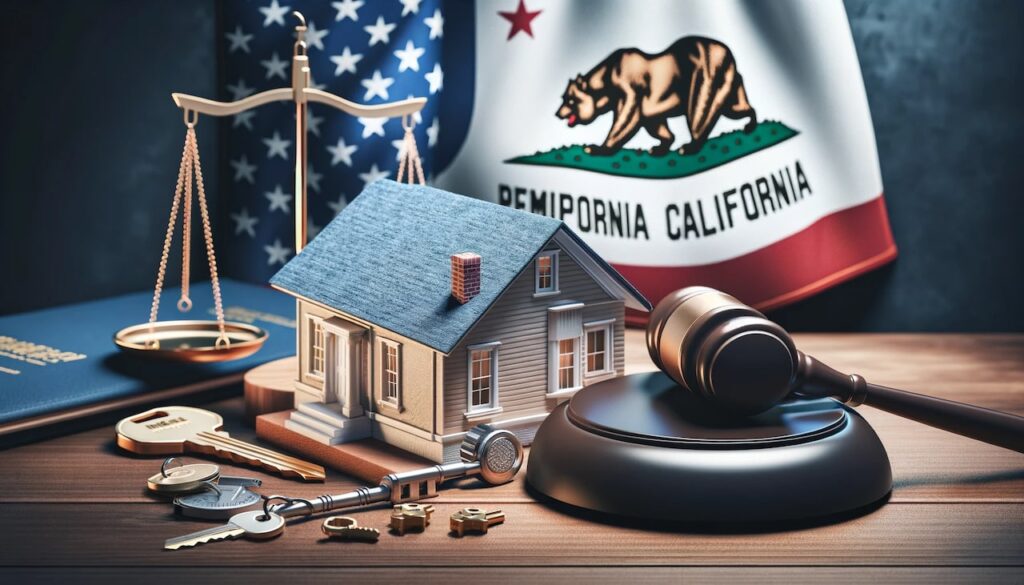![]()
Published on February 5, 2024
In California, premises liability law plays a crucial role in determining the responsibilities and rights of property owners and those who enter their premises. These laws are meant to ensure that whoever controls the property maintains a safe environment for visitors or they might be held liable for injuries. This guide delves deep into the intricacies of California's premises liability laws, offering property owners, tenants, and visitors valuable insights into how these laws operate and affect them.
Overview of Premises Liability Law in California
Definition and Scope
Premises liability law in California pertains to the legal responsibility of property owners and occupiers regarding accidents and injuries that occur on their property. This encompasses a range of scenarios, from
slip and fall accidents to injuries caused by defective conditions.
Legal Background
The roots of California's premises liability law can be traced back to both statutory law and common law principles established through court decisions. Key statutes, such as the California Civil Code, and landmark cases have significantly shaped the current legal landscape.

Types of Premises Liability Cases
Slip and Fall Accidents
One of the most common types of premises liability cases in California is slip and fall accidents. These can occur due to wet floors, uneven surfaces, or other hazardous conditions. For a successful claim, it must be proven that the property owner knew or should have known about the dangerous condition and failed to address it.
Inadequate Maintenance
Property owners in California are required to maintain their premises in a reasonably safe condition. Claims of negligent maintenance often arise from overlooked repairs. These dangerous conditions could cause injuries potentially leading to a premises liability lawsuit.
Defective Conditions
Defective conditions, whether inherent in the property's design or resulting from poor maintenance, can lead to serious injuries. The key is to establish whether the property owner was aware of the defect and if they took reasonable steps to rectify it.
Security-Related Incidents
In cases where inadequate security leads to injury or harm, property owners can be held liable. This is particularly relevant in commercial properties like
shopping malls or apartment complexes where there's an expectation of a certain level of security.
Determining Liability in Premises Liability Cases
The Role of Negligence
In California, proving negligence is fundamental in
premises liability cases. This involves showing that the property owner failed to exercise reasonable care in maintaining the property, leading to the accident.
Visitor Status and Liability
The legal duty owed by a property owner in California varies depending on the visitor's status: invitees, licensees, or trespassers. Each category comes with different levels of care and responsibility.
Special Considerations for Residential vs. Commercial Properties
Residential and commercial property owners face different legal obligations. Commercial property owners, for instance, generally have a higher duty of care due to the nature of their property usage.
Defenses in Premises Liability Cases
Comparative Fault
California operates under a "comparative fault" system, meaning that if the injured party is partly at fault for the accident, their compensation may be reduced accordingly.
Assumption of Risk
In some cases, if it can be shown that the injured party was aware of and voluntarily assumed the risk, this can serve as a defense for the property owner.
Other Common Defenses
The statute of limitations, usually two years in California for personal injury cases, is a critical factor. Additionally, proving that the property owner was unaware of the hazardous condition can also be a defense.
Steps to Take if You're Involved in a Premises Liability Case
For Property Owners
If an incident occurs, immediate action is crucial. This includes addressing the hazard, documenting the scene, and reporting the incident as required.
For Victims
Victims should seek medical attention immediately and document their injuries. Legal consultation is also advisable to understand the options for compensation.
Conclusion
Understanding premises liability laws in California is essential for property owners and visitors alike. These laws, especially California law, clarify the responsibilities and rights of both parties when a premises liability accident occurs. By being informed and prepared, property owners can mitigate risks, and victims can better understand their legal options. Pursuing a premises liability claim? It is always advisable to consult with legal experts for personalized legal advice and representation.
Victim of a premises liability incident in Los Angeles? Contact our expert personal injury law firm for dedicated assistance in securing the justice and compensation you deserve. Act now!
